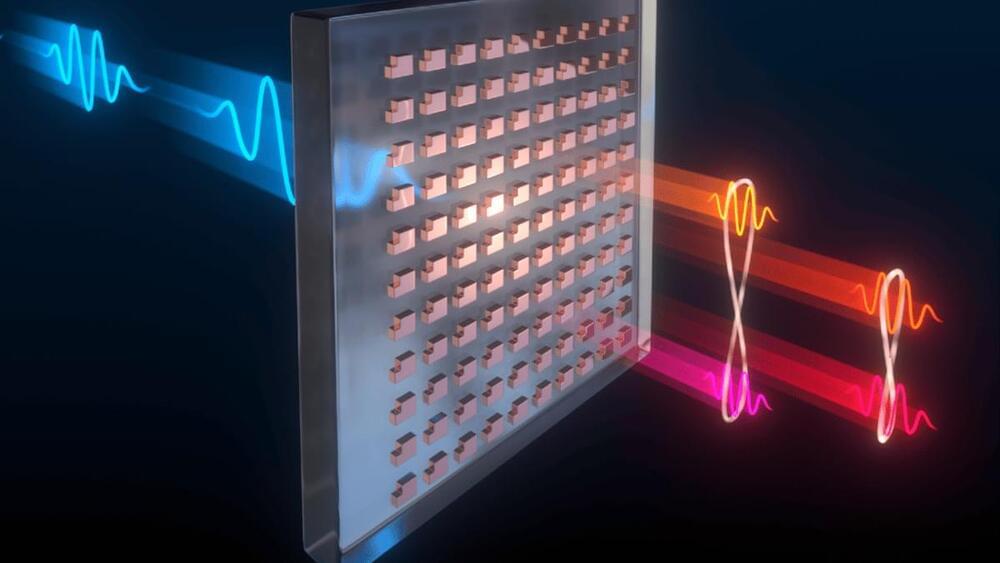Scientists at Sandia National Laboratories and the Max Planck Institute have developed a way to produce a web of quantum entangled photons using a far more simple setup than usual. The key is a precisely patterned surface 100 times thinner than paper, which could replace a roomful of optical equipment.
Quantum entanglement is the bizarre-sounding phenomenon where two particles can become so entwined together that manipulating one will instantly affect its partner, no matter how far apart they may be. This forms the basis for emerging technologies like quantum computing and quantum encryption.
The problem is, generating entangled groups of photons can be tricky, and is usually done with large arrays of lasers, specialized crystals, and other optical equipment. But the Sandia and Max Planck team has a much simpler setup – a metasurface.










Comments are closed.